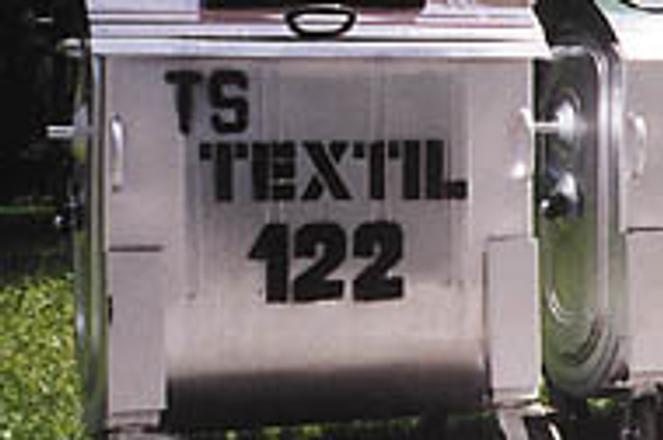Brezno's waste managers have said that by 2003 all residents will have access to waste separation containers.photo: Martina Pisárová
BREZNO - Slovakia's new waste law, which was passed in parliament on May 15, is steadily being incorporated into the administrative fabric of municipalities across the country. The new law is expected to increase recycling of products which are now adding to landfill.
To motivate and reward municipalities which separate waste, cities who decide to recycle will receive extra funds. The money is to come from a Recycling Fund (to be set up by January 1, 2002) which will collect money from companies that produce or import any products on a list of 11 types of environmentally-damaging waste. Funds will be doled out to companies and municipalities which recycle those materials for new products. Municipalities are also now allowed to fine individuals who refuse to obey municipal rules concerning waste, a power they never had before.
Although the cities are to take full control of their waste management programmes when the law goes into effect January 1, 2002, effective management of garbage has already begun.
In central Slovakia's Brezno, 70% of the town's 23,000 inhabitants already have access to containers for recyclable materials like glass, paper and plastic. It is expected that the whole municipality will have container access by the end of 2002.
City officials said that the process had been relatively easy as Brezno already had a long-standing tradition of separating waste. City officials said that they'd found it to be more economical than paying high prices to local dumps.
"We weren't raised to [separate waste] just because it's good for the environment - rather, we started this programme because we were forced to do so financially," said Tomáš Gaboň, head of the city's technical services section. "We'll all have to accept this new style, or else we'll drown in waste."
Gaboň said Brezno began separating trash in 1996. "At that time the prices for disposing of one tonne of waste at dumps increased dramatically, from about 30 or 40 Slovak crowns to 700 crowns," Gaboň explained. "The town was forced to save money, and separating garbage was the best option."
In other towns, however, implementation of the new law has been postponed to the beginning of next year.
In Dunajská Streda, for example, a private company is still under contract to manage the southern Slovak city's waste. The city, therefore, can not take over until the contracts between the firm and individual residents expire at the end of the year.
Zoltán Pápay, head of the Dunajská Streda environment department, promised that the city would begin implementing the law by January 1, 2002.
In the country's capital city, meanwhile, Miloš Šaling, head of the environment issues section in Petržalka, one of 17 Bratislava city districts, said "I haven't yet digested the law, so I can't really tell you what's going to happen.
"So far there have been no changes. We've been separating glass and paper since 1995, but I don't know exactly how many separation containers there are. Somewhere between 180 to 240," Šaling said.
New payment system
Until now, many towns' citizens were charged for waste disposal according to the size of their homes in square metres, regardless of how many people lived in them. The new waste law, however, gives municipalities the power to charge a flat rate per person, or by the amount of waste produced by each individual.
"The new system is more democratic," said Gaboň. "The flat or house people live in does not produce waste - people do."
Municipalities will be able to charge anywhere between 80 and 1,200 Slovak crowns per person per year.
In Dunajská Streda, residents have traditionally paid according to flat size. In future, though, they will be paying 400 crowns per person.
In Bratislava, residents were also charged according to the size of their flat, or per number of families living in a block of flats. "The decision [on how much to charge] was up to the block of flat's landlords, who were responsible for the waste services," said Mária Belovičová from the Bratislava magistrate's Environmental Issues Department. "The payments varied according to the number of families living in a block of flats, the frequency with which waste containers were emptied, and so on."
City leaders agreed that charging per person would be less complicated. "It would be hard to keep track of how much each flat produces," Belovičová said.
Non-payers or those who claim ignorance of the fees can be charged by up to 5,000 Slovak crowns.


